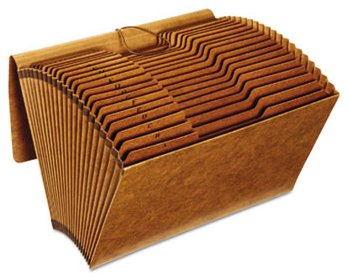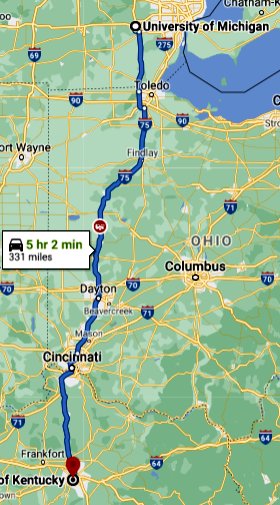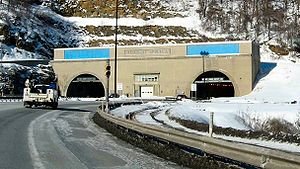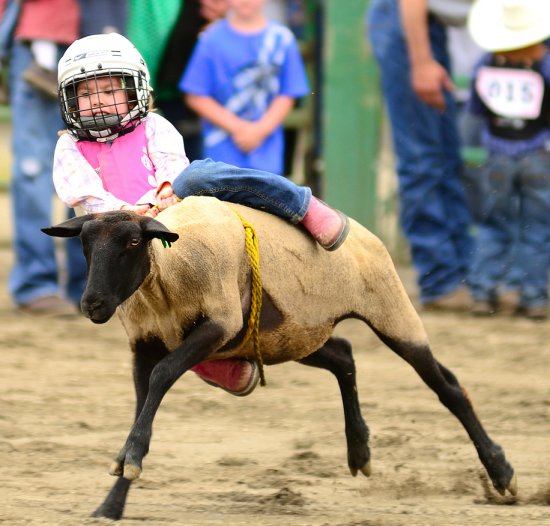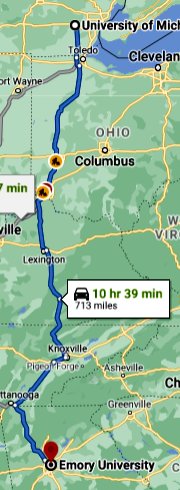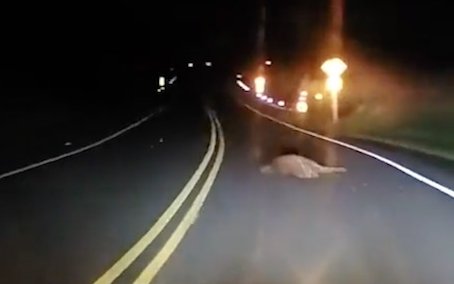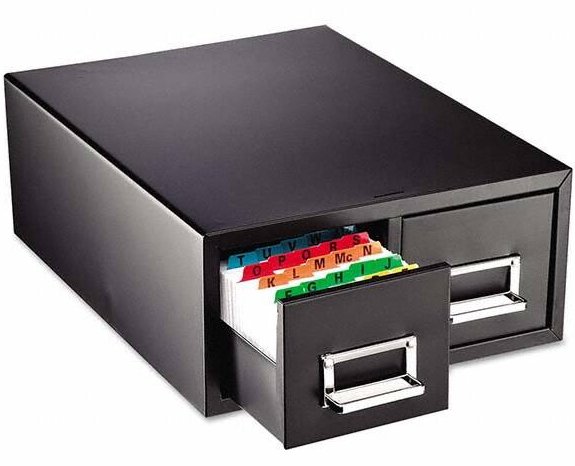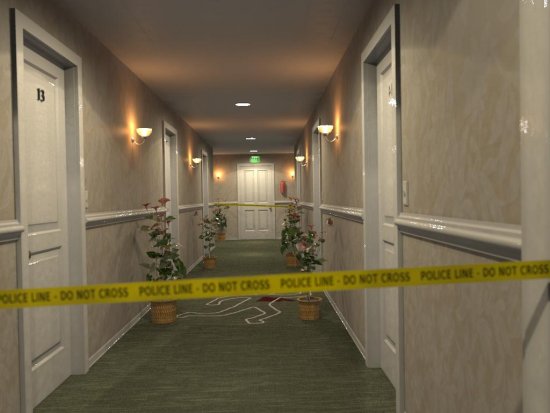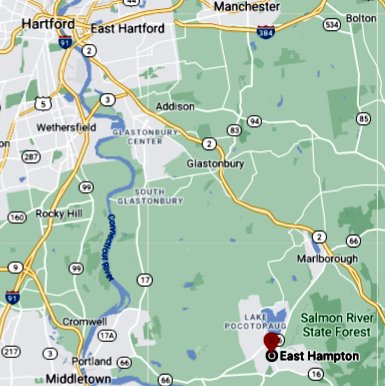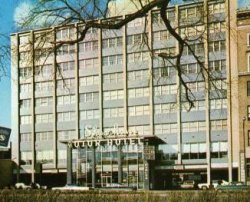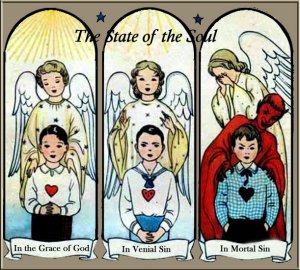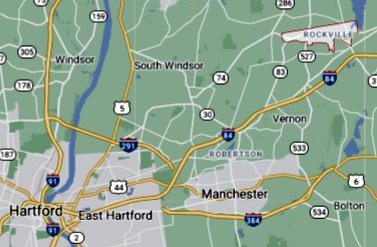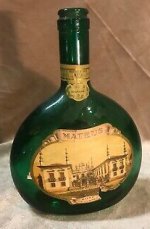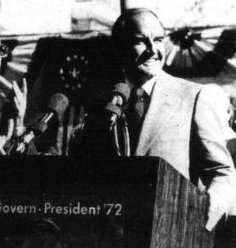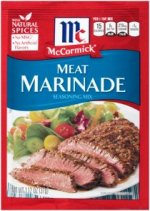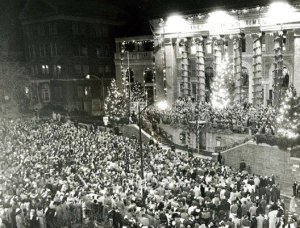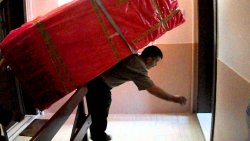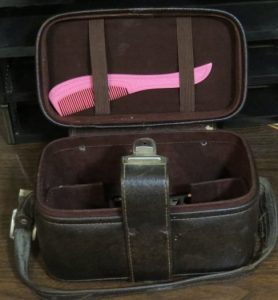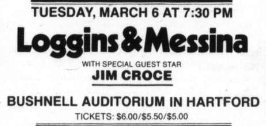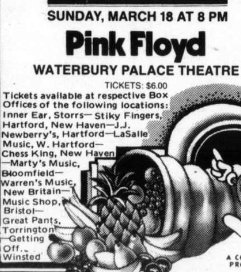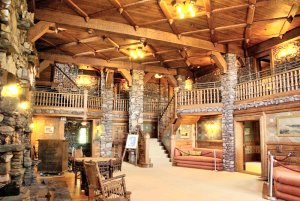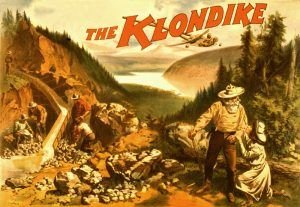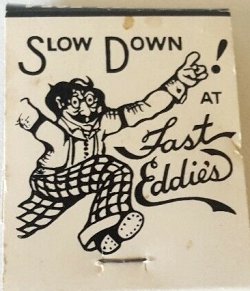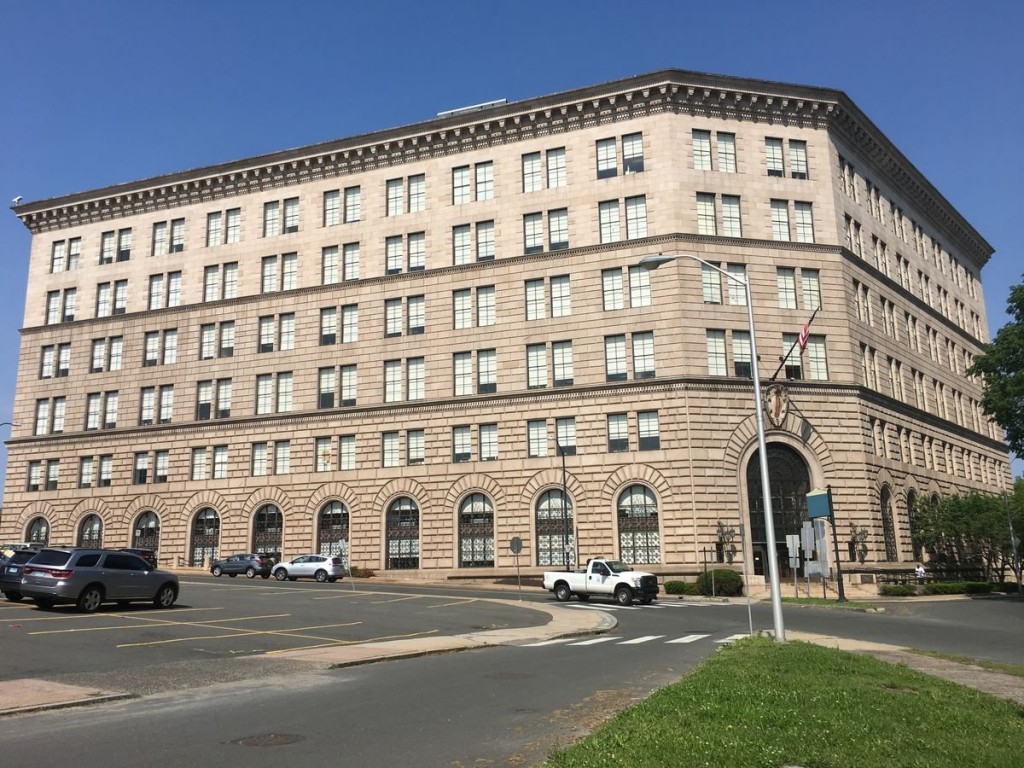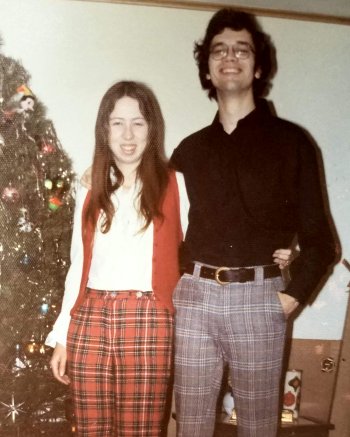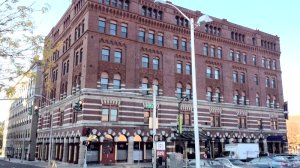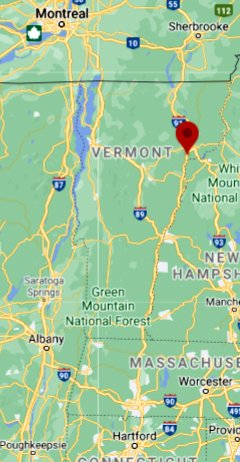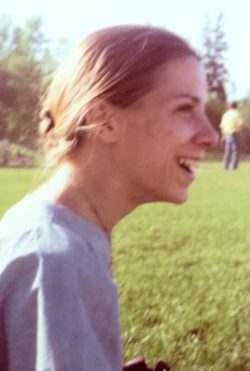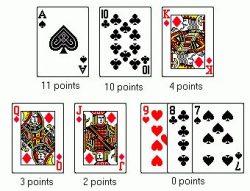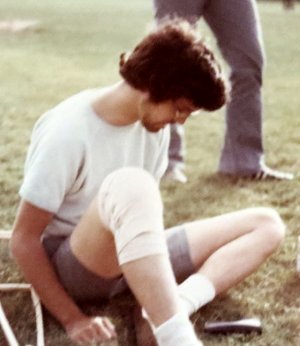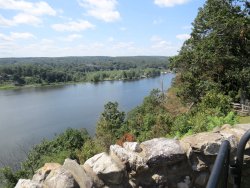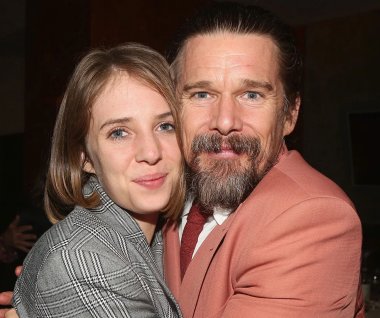First year of coaching. Continue reading
The topic in intercollegiate debate remained the same all year. The one for 1974-75 was “Resolved: That the powers of the Presidency should be significantly curtailed.” At nearly all major tournaments teams debated an equal number of rounds on both sides of the question in the preliminary rounds. A primer on the mechanics of college debate tournaments can be read here.
This topic, by the way, was very similar to the one that was debated when I was a junior in college: “Resolved: That executive control of United States foreign policy should be significantly curtailed. I felt that I was slightly ahead of the game.
The first tournament on the docket was at Western Illinois University in Macomb, IL. In preparation for the tournament I scheduled a couple of practice debates. The guys were much better than I anticipated. They certainly were better than the four people who participated in the exhibition debate at the beginning of freshman year. I could not imagine how Wayne Miller and Dan Gaunt compiled a record of 0-8 at districts in the previous spring. They only won four ballots out of twenty-four!
Aside from helping get the debaters ready, I needed to do a good bit of administrative work to prepare for this tournament and all the others:
- The host university should have mailed an invitation with a registration form to the team. If we did not have one, I needed to contact them somehow to request one. I don’t think that I ever actually did this. Long distance calls were costly in those days.
- In that first year I asked the guys about the quality of the tournaments. A lot could have changed in the four years since I had debated. For example, I did not remember ever hearing of Western Illinois’s debate team, much less its tournament.
- I needed to project out how much it would cost to attend. I had to pay for tournament entry fees, gasoline, tolls, housing, and the per diem for food. Credit cards were a new thing in 1974; I did not obtain one until more than a decade later. So, I always asked for a little more than I planned to spend and brought some of my own money, too. I had to plan out the whole year to make sure that enough money was left over for the district tournament. If we qualified for the National Debate Tournament, we would beg, borrow, or steal what we needed.
- Here is a list of factors determining the cost of each tournament:
- Who will accompany the debaters? Usually I did, but Don Goldman had to judge at a certain number of tournaments in order to be allowed to judge at districts. Occasionally we got someone else. No one accompanied the guys on the trip to California.
- How were we getting to the tournament? We never rented a car, but we might need to reimburse wear and tear.
- How many teams were we sending? There must be enough room in the vehicle to hold them.
- Where were we staying and what was the cost?
- If I decided that we were going, I filled out the registration form and mailed it in.
- A few days before we left I submitted a request to the department’s secretary. Dr. Colburn probably had to sign these.
- The day before we left I picked up the money for the tournament in cash.
We were expected to get receipts for all expenses. Sometimes that was not feasible. For example, snack machines at gas stations and hotels do not give receipts.
So, I bought a book of receipts. They were the familiar kind that a waitress at a diner might use. If I was missing a receipt, I would write one up myself or ask one of the debaters to forge one. We spent so pitifully little money that I figured that no one could conceivably complain, and, in fact, no one did.
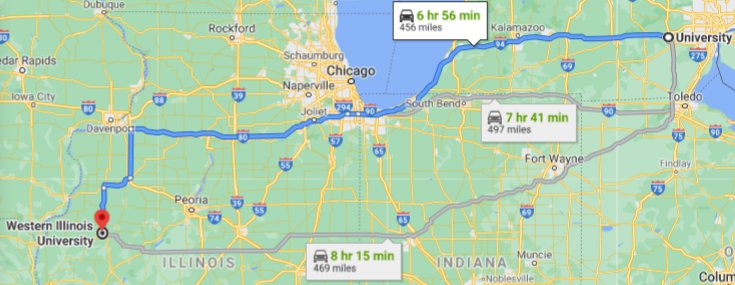
When I looked at the invitation from Western Illinois I discovered that Dale Hample1, whom I knew from my debating days, was now the debate coach at WIU. He represented “that school down south”. We debated several times. The only one that I clearly remembered was the one at districts.
I decided to bring two teams in Greenie to Western Illinois. My recollection is that the area behind the backseat was loaded from floor to ceiling with debate materials, and everyone had a briefcase or something equally awkward on his lap. Three large males were crammed in the pack seat. I calculate that we must have spent over the entire trip in those uncomfortable conditions. I drove all the way with the seat pulled so far forward that my knees nearly touched the steering column. No one complained.
For much of my information about the debate team’s adventures I have relied on the recollections of Wayne Miller. Any mistakes are definitely his fault.
At Western Illinois Wayne debated with Dan Gaunt, and Mitch Chyette debated with Mike Kelly. Wayne and Dan ran a case that provided Congress access to all information in the executive branch in order to prevent presidents from engaging in misadventures like Vietnam. They qualified for the elimination rounds and made it to the quarterfinals. Mitch and Mike finished in the middle of the pack.
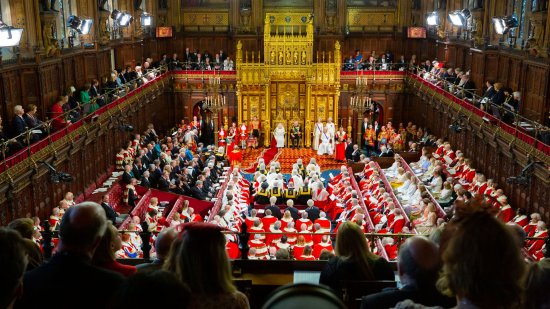
The very first debate that I judged was one of the worst that I ever heard. Illinois College’s affirmative case proposed to replace the entire executive and legislative branches with a “parliamentary system”. This may or may not have been a good idea, but the affirmative debaters presented no proof of any substantial improvement. The negative from Morehead State could not think of any very good arguments against it either. I ended up voting for Morehead, but I gave by far the lowest speaker points of any judge in the entire tournament—10, 8, 8, and 6 on a thirty-point scale.
I was not chosen to judge any elimination rounds, probably because my assessment of those teams seemed, at best, squirrelly. In the next six years of judging I never again gave anything close to those points. I probably overreacted. All four debaters were bad, but there was no sense in rubbing their noses in it.
The judges’ ballots were carbonless forms. The tournament kept the top white copy and distributed to the teams the pink and yellow copies. On the way back to Ann Arbor we had plenty of time to go over the comments of the judges in each round. We then filed the ballots alphabetically by the last name of the judge in an accordion file that we brought to all tournaments. Whenever we were assigned a judge with whom we were not familiar, we would check the file to see if he had judged any of our teams. It was very important to try to understand how different judges react to various types of arguments or presentations.
I drove Dan and Wayne down to Lexington for our second tournament at the University of Kentucky. This tournament attracted top teams from all over the country. The Wolverines did very well. They were 7-1 in the preliminary rounds and made it to the quarterfinals.
The Kentucky tournament was memorable for me because I judged my first elimination round. It featured the future national champions, Robin Rowland and Frank Cross from Kansas University against the University of Wyoming. The other judges on the panel were extremely distinguished—David Zarefsky2 from Northwestern, Jim Unger3 from Georgetown, Harold Lawson4 from Ohio State, and Bill Southworth5 from Redlands. I was a nobody.
My ballot was the last one turned in. I went over all the arguments very carefully. All five of us voted for KU. While driving home I realized that if I had voted for the Cowboys, I might have been “sat out” by the most celebrated panel of all time. If so, that might have been the last elimination round that I was ever allowed to judge. Word spreads quickly if you cast too many questionable ballots.
John Lawson’s debate career at Michigan exactly coincided with the period that I had been in the Army and then employed at the Hartford Life. He knew Bill Davey, Mike Hartmann, and Bill Black, and he had probably heard stories about me. I am not sure what he was doing in 1974-75. His LinkedIn page says that he got a teaching certificate at U-M in 1975. Maybe he was working on that.
In any case John agreed to accompany the guys to the most important tournament of the fall semester at Georgetown. I don’t remember the results, but their drive back was memorable. They were caught in a snowstorm and were trapped in the Allegheny tunnel, which is well over a mile long, for some time. Not a good situation for a claustrophobic.
At some point early in the year Paul Caghan, who was debating with Don Huprich, asked me to come to his apartment to work with him on his affirmative case. I think that it proposed to eliminate the CIA. I almost never turned down a request for assistance.
Paul’s apartment was located a mile or two north of the main campus. Most U-M undergraduates who lived off-campus—and a large number of students did—sought reasonably priced accommodations in old houses that were within walking distance of campus. I was therefore surprised to find Paul living in a really nice, modern, and spacious apartment in a regular apartment building.
Paul and I were creating “blocks” for his case. We listed arguments that opponents might be likely to use and prepared “canned” responses to them. This process frees up more time for other things in the debates themselves. Everyone did it, even in my day.
Paul and I made quite a bit of progress for an hour or so. We were seated at the kitchen table, on which were spread Paul’s debate materials.Then the doorbell rang. Paul got up to answer it. I stayed in my chair.
A large Black guy was at the door. Paul greeted him and, ignoring me, escorted him back to the bedroom. They were in there for fifteen or twenty minutes with the door closed. Then they walked together to the front door, and the big guy left. This was not my first rodeo; I had a pretty good notion of what had transpired, but I held my tongue.
Paul came to see me in the debate office to discuss the debate program’s funding a few times. The first subject was the stipend that had been available for decades to one female debater at U-M every year. Paul said that in the previous year he had arranged with Dr. Colburn for her to be awarded the money, which she then had returned to the team to help pay expenses. He said that she would do it again in 1974-75. I just had to give her name to Dr. Colburn. I did so, and the debate budget was instantly boosted by 40 percent.
Paul also had devised a plan for funding the entire program outside of the speech department. He had his eye on two sources—the university’s summer debate institute for high school students and the high school debate tournament held at U-M. I knew nothing about either one. If they existed when I debated, I heard nothing of them. Both of these activities were run by an obscure administrative department far from the speech department in the Frieze Building.
Paul showed me materials that he had created to promote the institute and the tournament nationwide and thereby to increase their revenue-generating capacity markedly. He asked me for help in putting the case before the administration.
I knew nothing about dealing with the bureaucracy of a huge university. I did know that it would be easy to step on someone’s toes, and the person with sore toes would be likely to fight back. Before one attempted anything like this, it was crucial to understand the politics. I came back to Michigan to coach debate. The last thing that I wanted to do was to become involved in a political war. As they say in the military, “That’s above my pay grade.” So, I declined to help Paul with this project6, and I did not hear about it again. A few years later I did come to understand the politics, and I was very glad that I had avoided a confrontation.
I remember taking one trip with Paul. Wayne Miller’s brother lent us his car to drive to the tournament at Emory University in Atlanta. I drove most of the way, but after sunset I became sleepy. Paul volunteered to drive. Several times I excoriated him for driving too fast, but he persisted. He just had a lead foot. Somewhere in Tennessee we ran over a deer. The deer was lying on the highway, presumably dead. We all saw it in the headlights, but at the speed that Paul was driving he was unable to avoid it.
The gas gauge immediately showed empty. We stopped to check whether the fuel tank had been ruptured. Fortunately, the tank was intact, but the gauge no longer worked. I later had to pay Wayne’s brother to replace it.
I have no recollection of Paul attending any tournaments after Emory.
We also attended a tournament at Bradley University in Peoria, IL, at some point in the autumn. I don’t remember anything about it. Don Goldman may have escorted the debaters.
The two novices, Tim Beyer and Stewart Mandel definitely attended at least a couple of tournaments in the fall, but I am not sure which ones.
Over the Christmas break four of the guys—Wayne, Dan, Mitch, and Mike—flew to California to debate in tournaments at UCLA and Redlands. I paid the entry fees out of the budget, but they paid their own expenses, including travel and lodging. It was probably a great experience for them, but the results were strictly mediocre.
Since Dan Gaunt decided against debating in the second semester, Wayne needed a new partner. Wayne had always been a first negative, and so had Mike Kelly. So, the adjustment would be easier for Mitch, who had debated second negative all year. Mitch was probably also at least a little better than Mike. I paired Mike with Don Huprich for the second semester.
The first tournaments in January were in Boston. Boston College, MIT, and Harvard held nearly consecutive tournaments. I originally intended for us to attend all three, but I had accidentally “mailed” the registration form for MIT into a trash can on State Street in Ann Arbor.
We attended both BC and Harvard in 1975 and 1976. One year both Sue and I drove with two debaters each. The other year I drove by myself with Wayne and Mitch. My recollection, which may be wrong, is that the two-car year was 1975. Here is what happened.
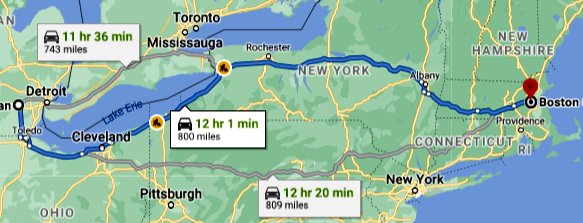
We planned to drive both Greenie and Sue’s Dodge Colt across Ontario and reenter the United States north of Buffalo. We knew that the border security at the Detroit-Windsor end would be trivial. Thousands of people worked in one city and lived in the other. The biggest TV station in the Detroit area was CKLW in Windsor. Its signal could easily be picked up in Plymouth.
However, by the time that we reached the border between Ontario and New York we had been driving for a long time, we were tired, and we probably looked it. Sue and I were driving small cars with a great deal of luggage—six suitcases plus a large number of briefcases and large steel file boxes that each contained hundreds of 4″x6″ cards on which were written quotes to be used as evidence in debates. Don and Mike were passengers in Sue’s car. Both of them had short hair, and Sue was dressed respectably. On the other hand, Wayne and I both had rather long hair. Mitch had very curly hair that resembled Harpo Marx’s. All three of us wore blue jeans, and I sported a beard. I also wore a cowboy hat, coat, and boots suitable for riding the range.
The border agents swooped down on Greenie. They made us remove everything from the car. They wanted to know what we were trying to bring into the U.S. I explained that we were debaters going to Boston from the University of Michigan and that we were carrying a lot of debate materials—cards and paper. They made us open everything, and they spent the better part of an hour examining our gear.They found nothing. Then they let us all go.
They ignored Sue’s car. I later learned that Don had brought some marijuana in his suitcase. He had been sweating bullets during the border check. I made it clear to him that he was never to bring dope on debate trips again. I cannot even imagine how much trouble he would have been in then, and I would have been in the soup when we returned.
I think that we stayed in an apartment in Boston during the BC tournament. This was arranged by a guy named Bill Topping. I am not positive, but I think that Sue stayed at her parents’ house in Enfield, CT, while the preliminary rounds were going on. She came back to Boston for the elimination rounds. I know that she sat next to me for a debate that included Larry Summers from MIT, who later became the President of Harvard and then Secretary of the Treasury. He won that round, but he did not win the tournament. Neither did either of our teams.
In between the two tournaments we stayed overnight in the Hartford area. Sue and I stayed with Jim and Ann Cochran. I remember that we tried to play bridge in the evening. Sue and I were partners. She knew a little about the game, but she had a strange aversion to drawing trump. On two hands in a row she was declaring a makeable contract. After the first hand we all patiently explained that if you were playing in a suit contract, and you needed more than one or two tricks in a side suit, you first needed to lead out trumps until the opponents had none.
On the next hand—the next hand!—she faced a similar situation and neglected to draw trump. I banged my fist down on the table so hard that the table broke. I may have imbibed a beer or two.
It was great to see some of my friends again. Jim and Ann may not have been as enthusiastic.
The guys did not stay with us at the Cochrans. I think that they stayed in Enfield with Sue’s relatives.
Wayne and Mitch finished in the middle of the pack at Harvard, too. On the second evening Mike and Don decided to try a pizza place that was not on the tournament’s list of recommended restaurants. They both got sick and had to forfeit a round or two. They were much better by the time that we were ready to leave.
Huprich disposed of his marijuana. I did not ask him how. The trip back was blessedly uneventful.
Northwestern sponsored the biggest tournament in the district. I remember that it was very cold at this tournament every year that I attended. I met Wayne’s friend Howard Kirschbaum, who went to school there. He remarked that he planned to get his degree in three years. This astounded me. Why would anyone want to cut short what was undoubtedly the most enjoyable period of one’s life? College life was ideal; the real world not so much.
Wayne and Mitch qualified at the tournament, but they lost in the first elimination round to an extremely good team from Redlands.
Don Goldman took Tim and Stewart to a lower-level varsity tournament at the University of Detroit. The guys had an unbelievably good tournament. They made it all the way to the final round!
The last varsity tournament before districts was at Butler University in Indianapolis. This was an important tournament for us because we did not attend a lot of the tournaments in the district. Some of the judges from other schools in the district may not have seen much of us. Wayne and Mitch qualified again, but they were eliminated soon enough that they were able to watch Howard Kirschbaum, a little the worse for wear, lose in the semifinals. I must have been judging the other semifinal round, but I don’t remember it.
The high school tournament sponsored by U-M was held at some point in the second semester. Don Goldman designed the schedule, which had been advertised as protecting teams from facing other teams in their district. Don had received an outdated list of the districts, and that is what he used. A few of the coaches were upset because we scheduled their teams to meet teams from their districts.
My job was to make sure that there were judges every round. Dr. Colburn ran the assembly at which the awards were handed out.
I took Tim and Stewart to Novice Nationals, which was also held at Northwestern. We stayed at (I think) a Holiday Inn in Evanston, quite close to the university. During the night someone broke into the room shared by the three of us. I woke up to see in the dim light someone rummaging through the pockets of a pair of pants that belonged to one of the guys. I yelled at the intruder. He immediately ran away. I called the desk. They sent a security guard to our room. We determined that we had not lost anything. I always slept with my wallet under my pillow.
We later learned that the thief had been apprehended. Ours was the last room. He had already burgled several room using a passkey obtained from a maid.
I have a vague recollection that Tim and Stewart qualified at Novice Nationals, but, if so, they did not get very far in the elimination rounds.
During the entire season I had religiously kept careful records of our expenses. I had collected receipts to justify every expense. However, I had only turned in receipts to the department’s secretary for one or two tournaments. Before districts I had to get caught up. It’s not as if I had been lazy or dishonest. I just spent almost every waking moment trying to help prepare the debaters. I did as much research as anyone.
I presented all of the receipts and expense forms to the department head’s secretary. I do not remember her name. Evidently she was shocked and angered that she had to spend so much time processing these forms. The next day her boss, Edgar Willis7, summoned me to his office.
It was not a pleasant meeting. He began by telling me that I had upset his secretary by dumping all of my travel reports at once. I apologized, and I mentioned that no one had made me aware of any schedule or deadline for submitting them. During the debate season I had had very little time for paperwork. Now that it was almost over I had a little time.
He then asked me about the scholarship to the female debater, Paul Caghan’s girlfriend. He wanted to know why she did not go to any tournaments. I told him that she had said that she did not want to attend any. This was completely true.
Then he accused me of prejudice against women because I only recruited male debaters. I was happy that the interrogation turned in that direction. I explained very sincerely that recruiting was not part of my job. I insisted that I had never talked to anyone, whether a current U-M student or a high school debater who was coming to U-M, about joining the debate team.
He then complained about the way that the debaters talked. He said that several faculty members had overheard practice rounds in which the people were speaking at a rate that was almost incomprehensible. This was true. It takes a lot of practice to learn how to listen to debaters. I explained that debate was a timed event. If a speaker did not have time to answer an argument, the other side would by default win that argument. Thus, a primary focus was to make sure that every important argument received attention. Speed was one factor, but so were economy of language and the ability to assess the impact of arguments in order to devote time on important ones. We worked on all of these things.
Finally Dr. Willis wanted to know why we needed to travel to Boston and Atlanta and California for tournaments. He said that he was sure that schools in Michigan and Ohio held tournaments that we could attend. I replied that we did attend some of those, but the level of competition at most of the closest tournaments was too low for our varsity debaters. Fortunately, I had a great example to support this argument. Two freshmen, Tim and Stewart, had recently finished second at the U-D tournament. After that he let me go back to work, chastened but unbowed.
As usual there were twenty-four teams at the district qualifying tournament for NDT. Two teams, Northwestern and Augustana College, had received first-round bids.8 The second teams from those two schools competed at districts. I thought that Wayne and Mitch had a pretty good chance of qualifying, but I figured that they would need some luck. They debated pretty well. Their 5-3 record was good enough to qualify. However, one other 5-3 team, Wayne’s friends from Western Illinois, had more ballots, and they received the final bid.
I wanted to apply for a second-round bid. After all, Wayne and Mitch were the next team in line to qualify, and they had a pretty good record overall. I tried to get Dr. Colburn to sign the application, but he would not do it. He said that the department would not authorize it. I asked him why not. At first he said that there was no money available. When I said that we would find money somewhere, he said that the department would still not approve it.
I did not know what to say. I felt crushed and betrayed. On the other hand, only Mike Kelly would be graduating. We really could wait until next year.
1. Dale Hample is now at the University of Maryland. He even has a Wikipedia page.
2. In 2021 David Zarefsky is still at Northwestern University.
3. Jim Unger coached at Georgetown and then at American University. He died in 2008. His Wikipedia page is here.
4. Harold Lawson died in either 1999 or 2000. At the time he was the debate coach at Central Missouri State University.
5. In 2021 Bill Southworth is still at Redlands.
6. Decades later Michigan became a national power in debate. The program was established outside of any academic department. The funding for the team comes primarily from the two sources that Paul identified. In the 2020-21 school year the team received two first round at-large bids to the NDT. According to the coach, Aaron Kall, the third team also probably would have received a bid, but the rules limited each school to two.
7. Professor Willis died in 2014 at the age of 100. His obituary can be read here.
8. Northwestern and Augustana both made the elimination rounds at NDT. None of the district qualifiers did. Both teams lost in the Octafinals. Baylor emerged as the Champion.


